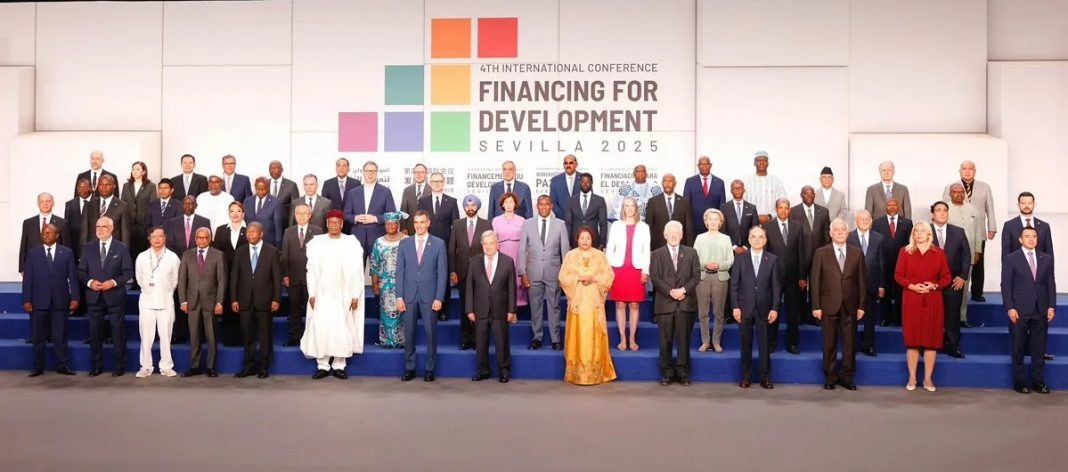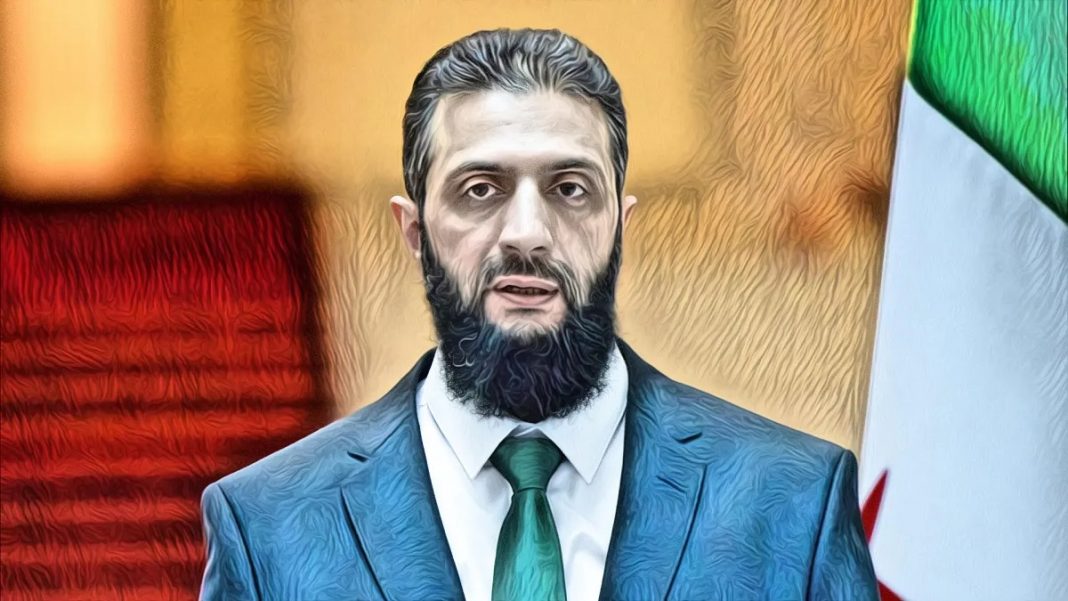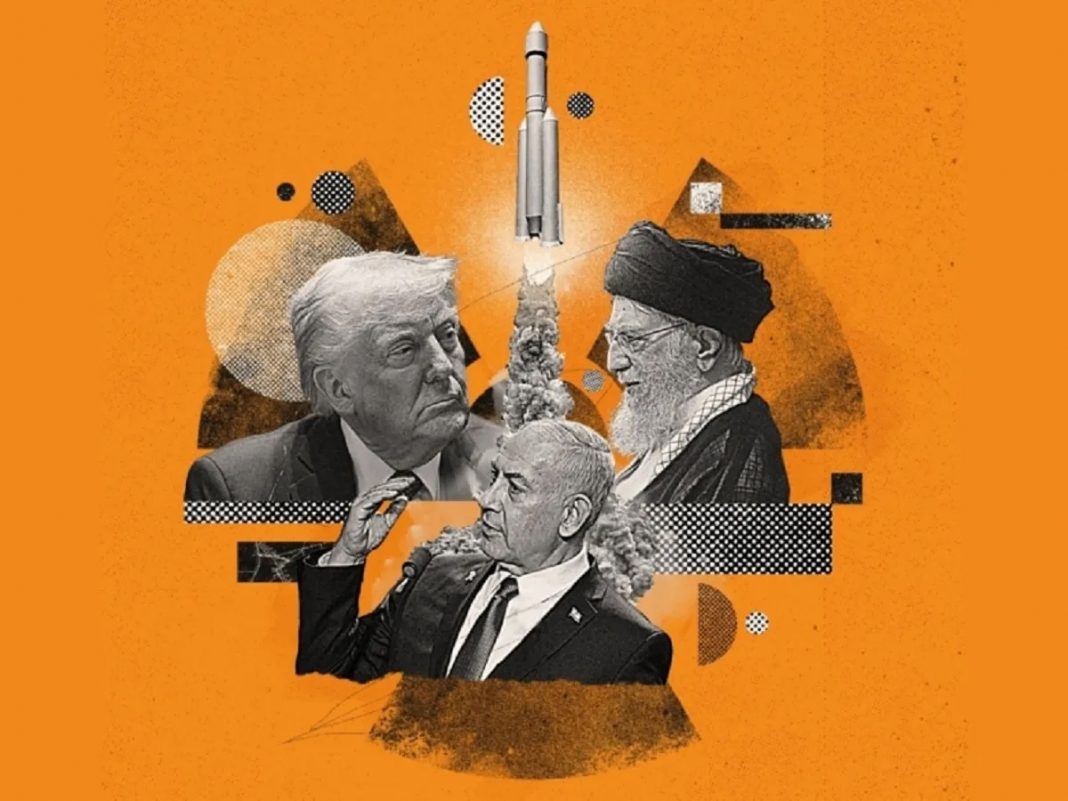Gabriel G Tabarani
Earlier last month, under the sweltering heat of Andalusia and amid rising global tensions, the world’s leaders—minus the United States—gathered in Seville, Spain, to confront a crisis in global development financing. What emerged was the Compromiso de Sevilla, a bold, hard-fought agreement that reimagines the future of development cooperation. More than just another international consensus, this new framework represents a generational shift: away from donor-recipient hierarchies, and toward a more equitable, inclusive, and Global South-led approach to financing development.
The Fourth International Conference on Financing for Development (FFD4), held from June 30 to July 3, came at a precarious moment. Official Development Assistance (ODA) is projected to plummet by up to 17 percent in 2025, while 3.4 billion people live under crushing debt burdens. Against this backdrop, global leaders faced a $4 trillion shortfall in financing for the Sustainable Development Goals (SDGs). But despite mounting climate, economic, and political stress, nearly every UN member state—except the United States—rallied around the Compromiso de Sevilla, an outcome that not only breathes life into multilateralism, but also signals a new path forward for international cooperation.
At the heart of this agreement is a fundamental rebalancing of influence. The Global South, long marginalized in shaping global financial norms, emerged not just as a participant, but as a leader. The agreement’s three pillars—maximizing development impact, strengthening country ownership, and amplifying Southern voices—reflect this shift in priorities. In fact, the very term “compromiso” (Spanish for “commitment”) captures its aspirational tone, distinguishing it from the transactional “compromises” that have defined earlier development frameworks.
Ironically, consensus only became possible after the United States withdrew from negotiations on the final day, rejecting provisions it deemed overly ambitious or duplicative. While its absence weakens implementation prospects in some quarters, it also cleared the path for a more cohesive and forward-looking document. The rest of the world pressed on, determined to demonstrate that multilateralism—recast in a more inclusive mold—can still work.
The Compromiso de Sevilla builds on the legacy of previous FFD conferences, such as the 2002 Monterrey Consensus and the 2015 Addis Ababa Action Agenda (AAAA). Yet unlike its predecessors, Sevilla moves beyond aid-centric models. It reimagines development finance as a multidimensional, participatory process. Nowhere is this clearer than in its provisions to tackle sovereign debt—a growing crisis that has forced the world’s poorest nations to spend more on debt service than on health or education.
Through initiatives such as the establishment of a global debt registry at the World Bank, a UN-led borrowers’ forum, and debt pause clauses during crises, the agreement takes meaningful steps toward building a more coherent and just global debt architecture. The creation of a new Debt Swaps for Development Hub, supported by Italy’s commitment to convert €230 million of African debt into development investments, marks a particularly promising avenue for innovation and solidarity.
But debt reform is only part of the picture. The Compromiso also targets systemic barriers to trade, particularly for least developed countries (LDCs), and calls for expanded preferential trade access, support for integration into global value chains, and investment in digital trade. Crucially, it seeks to bolster domestic resource mobilization—helping countries improve tax systems, curb illicit financial flows, and boost transparency so that they can fund their own futures more effectively. This push for fiscal sovereignty is long overdue, and donor countries have now committed to doubling their support for such efforts.
Of course, none of these reforms will matter if they remain words on paper. That’s where the Sevilla Platform for Action comes in. Comprising more than 130 initiatives, this platform aims to translate commitments into real-world impact through partnerships among states, civil society, and the private sector. Spain’s Prime Minister Pedro Sánchez rightly called it the legacy of the conference—but it is up to all stakeholders to ensure that legacy is one of action, not unfulfilled promises.
Several of the Platform’s initiatives deserve special mention. The proposed Future of Development Cooperation Commission—backed by Ireland, Malawi, Mexico, Nepal, Zambia, and the Gates Foundation—will help develop a new evidence-based narrative for development finance. Meanwhile, Colombia and Uruguay, along with the Development Bank of Latin America, are advancing a Global Public Investment model to democratize resource pooling and decision-making. A coalition of civil society groups, including Bangladesh’s Centre for Policy Dialogue and NYU’s Center on International Cooperation, is also building accountability frameworks to monitor implementation and ensure transparency.
Still, the document is not without its shortcomings. The push for international financial institution reform was notably deferred, leaving the World Bank and IMF boards—where developing countries are underrepresented—in charge. Proposals for expanding Special Drawing Rights or creating a global beneficial ownership registry were diluted or left ambiguous. And the final language on climate finance failed to match the ambition of the Paris Agreement, prompting some Northern states to issue caveats.
Yet even with these imperfections, Sevilla marks a pivotal break from business as usual. For too long, development finance has been shaped by power dynamics that treat developing countries as passive recipients of aid, beholden to opaque structures and conditionalities. The Compromiso de Sevilla begins to unravel that model, replacing it with one based on mutual respect, shared responsibility, and country ownership.
The United States may have opted out of the process, but its absence did not paralyze progress. If anything, it galvanized other nations to forge ahead. Sevilla is not a rejection of the West, but a recalibration of global priorities that reflects today’s multipolar world. And in doing so, it adds to a growing body of evidence—from the UN Ocean Treaty to the WHO Pandemic Agreement—that multilateralism is evolving, not dying.
As Zambian ambassador Chola Milambo aptly put it, implementation is what matters now. The Compromiso de Sevilla is not an endpoint—it is a beginning. A blueprint has been laid out. Whether the world follows through will determine not just the future of development finance, but also whether international cooperation can rise to meet the challenges of the 21st century.
Sevilla lit a path. It is up to all of us to walk it.
This article was originally published in Arabic on the Asswak Al-Arab website


